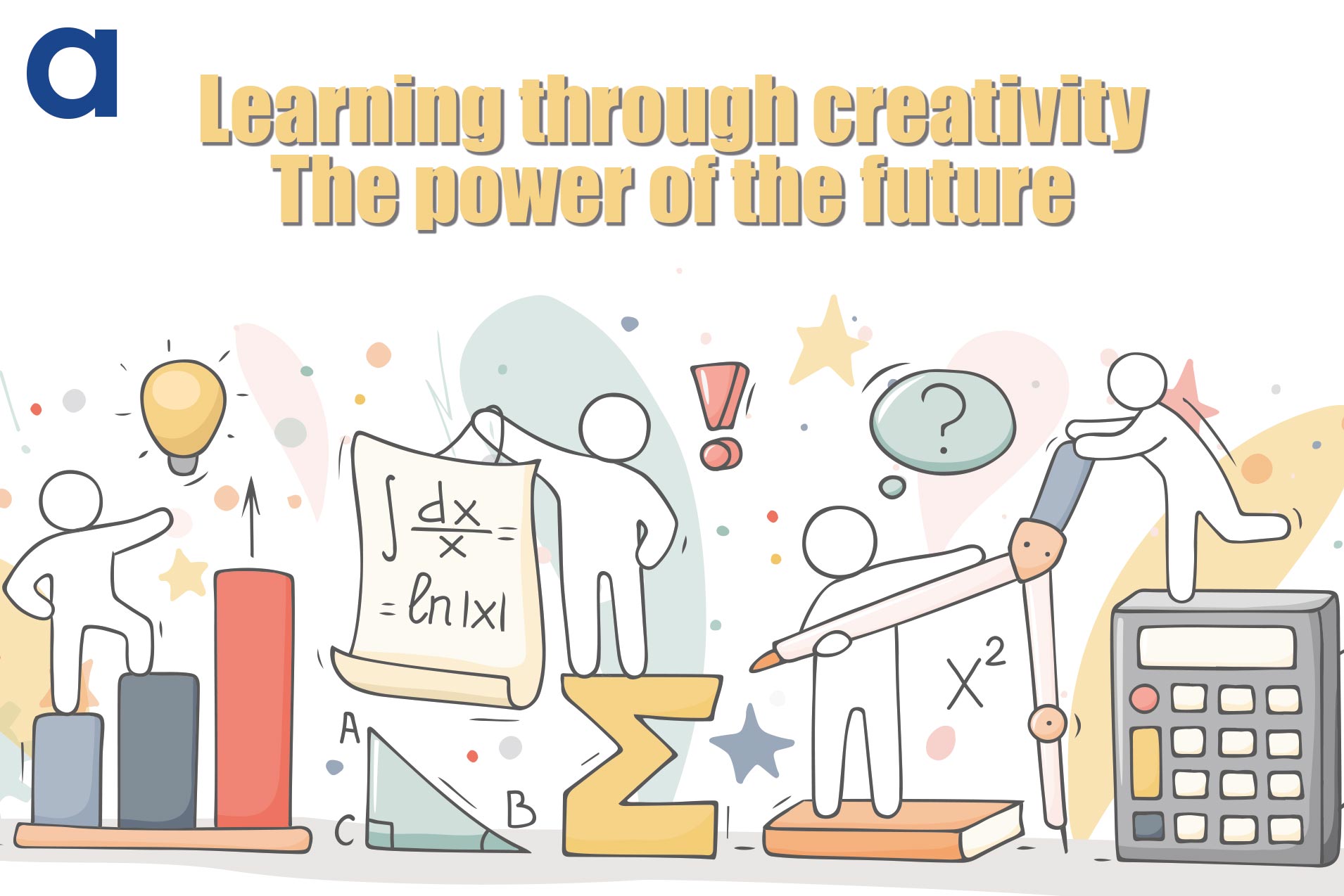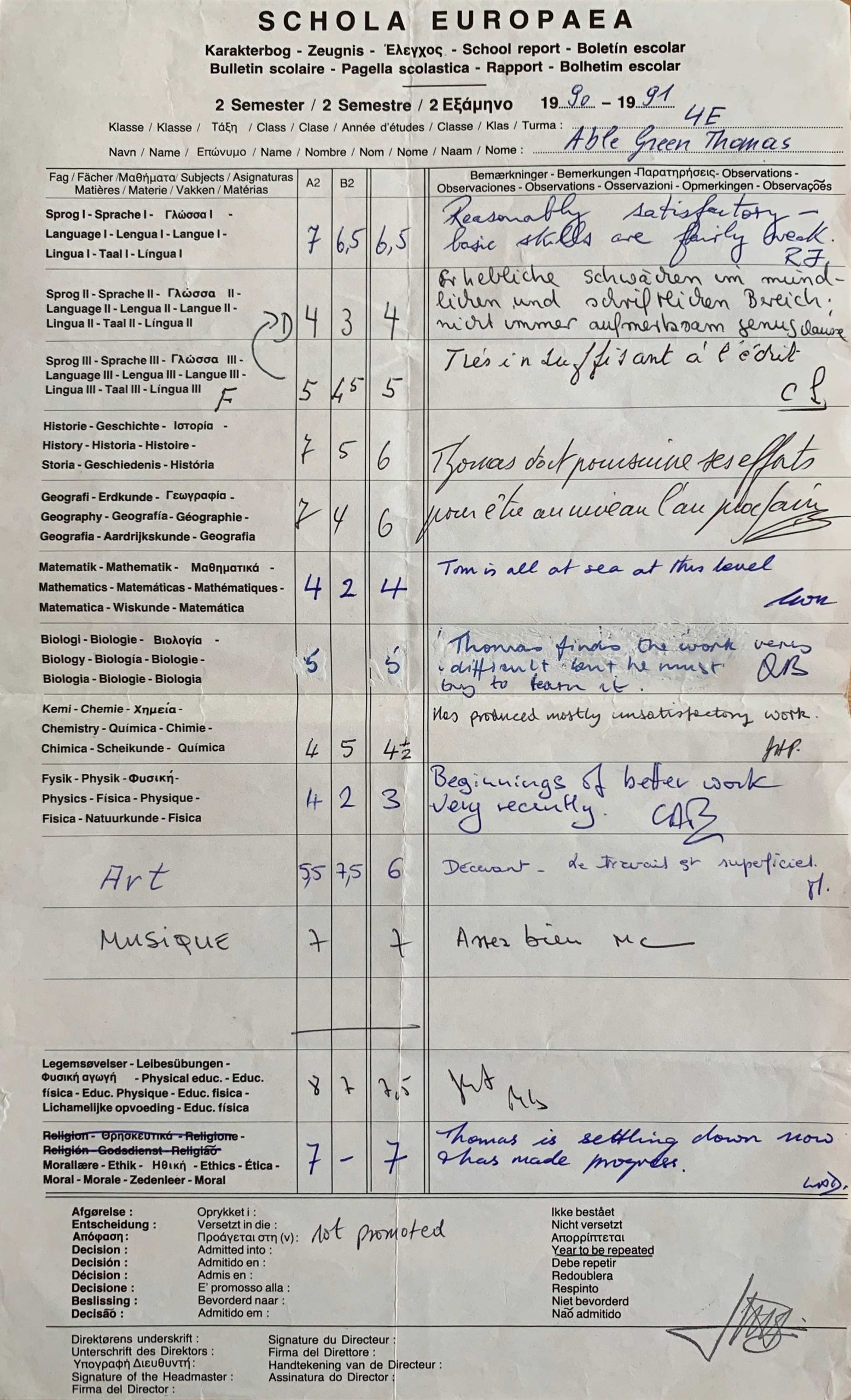
03 Feb Learning through creativity – The power of the future
My parents recently told me they were “down-sizing” – a nice way to ask if there were any items from their loft that I might want before they threw them out. Aside from a few paintings (not exactly Picasso-level) that I did, I also found in my hands, some old schools reports – some as far back as the 80s and early 90s. Not sure why these would still be around, however, I decided to take a trip down memory lane.
I have mentioned my dysfunctional education in the past, but sitting down to re-read some of these made me realise the potential of the future – how important creativity now sits in the education system. I was always promised at school that I was being prepared for the world of work, but reading my reports certainly suggested otherwise and I quote:
“Basic skills are very weak”
“Thomas finds the work very hard, but he has
to option but try”*
“Year needs to be repeated”
(*This was written over Tippex, so I am not sure how bad the comment really was) I was clearly failing the “system”, and if I was not going to meet the academic requirements expected, how was I really going to be prepared for the modern-day workplace?

With the continued increase in results-driven pressure, the traditional classroom needs to evolve, and in reality, we are seeing changes – Classrooms are becoming more future-proof, but we also need to see the evolution of the teaching and learning outcomes.
In April 2019, we saw the UK government unveil the new £10m EdTech strategy – a focus to help the use of technology, reduce teacher workload and, in turn, boost student outcomes and also to help to level the playing field for those learners with special needs and disabilities.
This news was desperately welcomed, but it was more evolutionary rather than transformational, and I guess more evolutional. However, technology is still being restricted, technology is still being purchased to reach the immersive and inclusive learning dream, but still on a budget. More than ever, education institutions are looking for evidence that the technology they are investing in will give them the outcomes they expect.
We know through research, allowing individuals the freedom to explore teaching and learning through creativity has a huge uplift in knowledge retention. Allowing students to have their own guided approach to problem-solving and tackling challenges head on and getting that “light bulb” moment is a powerful reward for all involved (I see it with my own children who are still in education). Students love technology, and using it as an educational tool, can only add deeper learning. With 68% of teachers and 64% of businesses suggesting students are not developing the soft skills they need for the modern-day workplace; how can we really prepare them?
Large corporate companies across the world have recently stated that they are spending billions of dollars in training and up-skilling current employees due to the rise and use of technology across industries. The recent report from the world economic forum suggests the top ten skills students will require by 2022, these soft-skills, we know, will have huge benefits for the workforce of tomorrow. If companies are offering flexible working hours and solutions – why can education not offer more flexible learning hours and learning solutions?
In 2015, Academia proudly supported a large scale iPad deployment at the University of Westminster and for me, the biggest success is not the quantity of iPads the University deployed. Rather, the statistics that show online resources and coursework for student learning that was accessed outside of the traditional school day really stood out to me. This meant that students were able to learn in their time but, importantly, at a time that suited them, making it personal and resulting in an uplift in results.
By “flipping” the learning environment now and giving students access to a 24/7 or even lifelong learning lifestyle, we can further help existing and future generations to be more creative in their approach and, in turn, develop those important measured skillsets – most importantly, the soft skills.
In hindsight, I am glad I have been able to develop my soft skills through my working life, I just wish I could have explored them in my early education.


